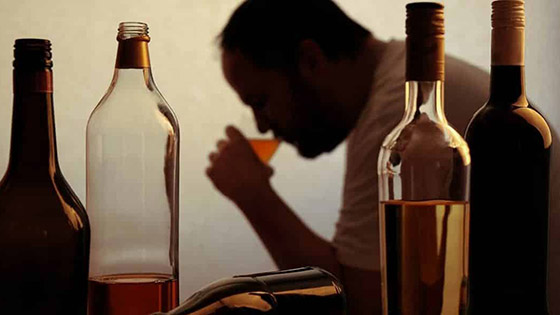
Alcohol Misuse During Coronavirus Pandemic
Alcohol poses different challenges during the COVID-19 pandemic. For those of us who are alcoholics, we realize that any alcohol is misuse, but what about are family and friends use of alcohol?
The COVID-19 pandemic is affecting every family across the country and will likely have a long-lasting impact on public health and well-being. Alcohol misuse is already a public health concern in the United States, with dramatic increases in emergency department visits and alcohol-related deaths observed in recent years. Alcohol has the potential to further complicate the COVID-19 pandemic in multiple ways.
First, we must consider the effects of alcohol misuse on the immune system. Alcohol misuse both activates the immune system, causing inflammation, and interferes with the body’s immune response to viral and bacterial infections. In the lungs, excessive alcohol damages epithelial cells that line the lung surface and is associated with acute respiratory distress syndrome. Ultimately, impaired immune system function and an increased susceptibility to respiratory illness could contribute to more severe COVID-19 and greater risk of mortality.
Excessive alcohol consumption may not only influence COVID-19 susceptibility and severity, but the broad effects of the pandemic are also likely to lead to excessive alcohol consumption. We know from previous disasters, such as 9/11 and Hurricane Katrina, that the stress of the events and anxiety about the future can increase drinking and exacerbate symptoms of alcohol use disorder. We also know that feeling socially isolated, a possible effect of physical distancing, can worsen symptoms of anxiety or depression, which may encourage more alcohol intake. Indeed, the current COVID-19 crisis appears to have already fueled increases in retail alcohol sales. From the stress of unemployment to feelings of isolation during physical distancing, there are many reasons the COVID-19 emergency may be influencing alcohol consumption.
In addition, some people should avoid alcohol completely. This includes individuals who take certain over-the-counter or prescription medications, have certain medical conditions, are underage, are pregnant or trying to become pregnant, are planning to drive or participate in other activities that require skill, coordination, or alertness, or are recovering from AUD or unable to control the amount of alcohol that they drink. People who have consumed alcohol heavily over time and want to reduce or stop drinking should seek medical help to monitor for and to prevent against potentially painful or even deadly withdrawal symptoms.
More people may drink and people may drink more heavily to cope with stress, sleep disturbances, and even boredom increasing their risk for alcohol use disorder and other adverse consequences. Although alcohol temporarily dampens the brain and body’s response to stress, feelings of stress and anxiety not only return, but worsen, once the alcohol wears off. Over time, excessive alcohol misuse can cause adaptations in the brain that intensify the stress response. As a result, drinking alcohol to cope can make problems worse and one may end up drinking to fix the problem that alcohol caused.
Physical distancing (which can lead to “social distancing”) during the pandemic also has profound implications for access to treatment services for those with alcohol problems. Social support is a very powerful re-inforcer for humans and is highly beneficial for helping people avoid relapse or an escalation in alcohol misuse. Recovery programs based on mutual peer support, and many different behavioral therapies, involve social support and are very helpful for people struggling with maintaining sobriety or regulating their alcohol consumption. However, in-person visits might prove difficult at the moment. People currently in recovery or those who need help may benefit from tele-health and online support group meetings. Increasing online social interaction can also improve moods and reduce the motivation to drink to cope. Remember that social distancing doesn’t have to mean social isolation. The extent to which we can help people find healthy ways to cope with stress could minimize the likelihood that they turn to alcohol.